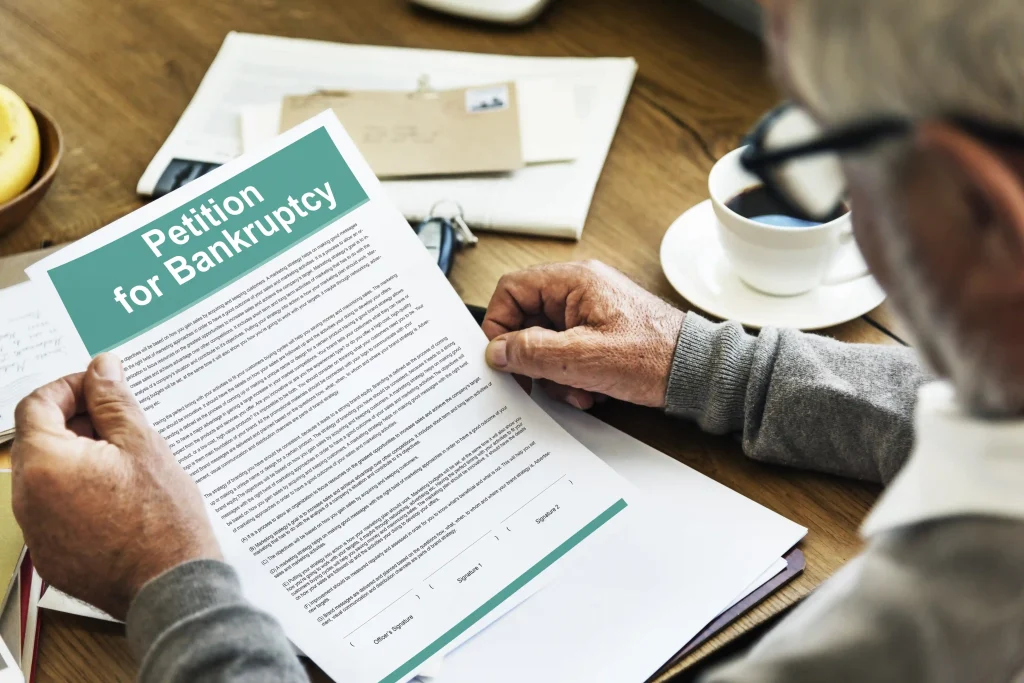
Understanding Georgia debt collection laws is essential if you’re facing collection efforts. These laws protect you from unfair practices, limit when and how debt collectors can contact you, and define what actions they can take. This guide will detail your rights, the legal limits on debt collectors, and how to effectively respond to collection attempts.
Key Takeaways
- ➤ Georgia debt collection laws provide significant protections for consumers against abusive practices and ensure transparency through compliance with both state and federal regulations.
- ➤ Consumers must understand their rights regarding debt verification, including the ability to dispute debts and request cessation of communication from debt collectors.
- ➤ Specific legal actions available to debt collectors in Georgia, such as wage garnishment and account freezes, have legal requirements and consumer protections that individuals should be aware of.
Understanding Georgia Debt Collection Laws
Georgia debt collection laws are designed to protect consumers from unfair and abusive practices. These laws work in tandem with federal regulations, particularly the Fair Debt Collection Practices Act (FDCPA), to ensure that debt collectors operate within a framework of transparency and fairness. Debt collectors are prevented from using abusive or overreaching tactics in their collection efforts, providing a layer of security for consumers.
Notably, Georgia law limits creditors’ ability to seize exempt property from consumers, ensuring that individuals are not left destitute by aggressive collection efforts. This is a critical protection, especially for those who may already be struggling financially. Debt collectors are also forbidden from threatening violence or using profane language in communications with consumers, reinforcing a standard of respectful interaction.
The Georgia Fair Business Practices Act further bolsters these protections by prohibiting deceptive practices and unfair or deceptive practices, ensuring that consumers are not misled or harassed. Debt collectors in Georgia must also refrain from contacting consumers at unreasonable times or places, specifically before 8 a.m. or after 9 p.m. These combined state and federal laws create a robust framework that safeguards consumer rights in the debt collection process.
What Is a Debt Collector in Georgia?
Under Georgia law, a debt collector is defined as any person or entity that regularly collects debts owed to others, including such person, debt collection agencies, lawyers, and even individuals who are in the business of collecting debts on behalf of others, including a collection agency. Understanding this definition determines who is subject to the various regulations and protections afforded to consumers.
Interestingly, current creditor who are collecting their own debts are not classified as debt collectors under federal law, which can sometimes lead to confusion regarding debt collection activities. This distinction means that certain practices off-limits to third-party debt collectors might still be permissible for original creditors.
Knowing who qualifies as a debt collector under Georgia law helps consumers identify who they are dealing with and what rules apply to their situation.
Legal Actions Available to Debt Collectors in Georgia
Debt collectors in Georgia have several legal actions at their disposal when attempting to collect on a debt. These actions include wage garnishment, freezing bank accounts, and placing property liens. Each of these methods has specific legal requirements and consumer protections that must be adhered to, ensuring a balance between the rights of the creditor and the debtor.
Knowing these legal actions helps consumers better prepare for and respond to debt collection efforts. For example, knowing that a debt collector must obtain a court judgment before garnishing wages can provide a debtor with time to seek legal advice or negotiate a payment plan.
The following subsections will delve deeper into each of these legal actions to provide a comprehensive understanding of what debt collectors can and cannot do in Georgia.
Garnishing Wages
In Georgia, the rules for wage garnishments by a debt collector are as follows:
- ➤ A court judgment must be obtained before garnishing wages.
- ➤ Once the judgment is secured, up to 25% of your disposable income can be garnished.
- ➤ Disposable income is the amount remaining after mandatory deductions such as taxes.
- ➤ If your disposable income is below 30 times the minimum wage, garnishment will not occur.
- ➤ This exemption provides a critical safety net for low-income earners.
Certain types of income are completely exempt from garnishment, including:
- ➤ Unemployment benefits
- ➤ Retirement benefits
- ➤ Child support
- ➤ Disability insurance benefits
If you receive these types of income, proving the funds come from an exempt source is essential to protect them from garnishment. Knowing these nuances helps you safeguard your income and navigate wage garnishment more effectively.


Freezing Bank Accounts
In Georgia, if a debt collector secures a civil judgment against you, they have the option to request a freeze on your bank accounts. This action can affect your access to funds and begins with the debt collector obtaining a court order, allowing them to levy money from your personal accounts. Consumers have the right to contest the freezing of their accounts by providing evidence that the funds are exempt or disputing the amount claimed by the collector.
Certain types of income, such as unemployment and retirement benefits, are protected from garnishment even if a court order is obtained. Knowing your rights regarding your bank accounts helps you take swift action to contest any unjust freezes and protect your financial stability.
Placing Property Liens and Repossession
Debt collectors in Georgia can place liens on both real estate and personal property to secure the repayment of a debt. To attach a lien to personal property, the collector must first register a judgment. This registration should be done in the court of the county where you reside. This legal mechanism ensures that the debt is secured against your property, which can complicate the sale or transfer of the property until the debt is paid.
Repossession is another tool available to debt collectors, particularly for secured debts like car loans. In Georgia, collectors can repossess property without needing a court order, a process known as self-help repossession. Knowing these legal actions helps you anticipate and respond to debt collection efforts more effectively.
Federal Fair Debt Collection Practices Act (FDCPA) Protections
The Fair Debt Collection Practices Act (FDCPA) provides a robust set of protections for consumers against unfair, abusive, and harassing behavior by debt collectors. Key protections under this federal law include:
- ➤ Debt collectors are restricted from contacting consumers at inconvenient times, specifically before 8 a.m. or after 9 p.m. local time.
- ➤ Consumers have the right to request that debt collectors cease contact.
- ➤ Debt collectors must comply with requests to cease contact.
Moreover, the FDCPA prohibits debt collectors from using deceptive practices, such as falsely claiming to be affiliated with the federal trade commission or using threats and profane language to intimidate consumers. If you dispute a debt, the collector must provide verification, including details of the original creditor.
These protections ensure consumers are treated fairly and can challenge illegitimate collection efforts and unfair practices.
Georgia State-Specific Debt Collection Protections
Georgia’s state laws provide additional protections that complement the federal FDCPA. Debt collectors in Georgia must provide a written notice detailing the amount owed and the original creditor within five days of initiating contact. This ensures consumers have clear and accurate information about the debts being collected.
Consumers in Georgia also have the right to request that a debt collector cease all contact, which must be honored if provided in writing. Georgia residents can request two free credit reports annually from each credit reporting agency, in addition to the free credit report allowed at the federal level. These state-specific protections enhance consumer rights in debt collection.


Prohibited Debt Collection Practices in Georgia
Georgia law strictly prohibits debt collectors from:
- ➤ Using harassing or abusive tactics, including threats of violence or using obscene or profane language.
- ➤ Harassing or deceiving individuals in the process of collecting debts.
- ➤ Making excessive or repeated calls, which is prohibited under both state and federal law.
Collectors must also avoid deceptive practices or misrepresenting themselves during communications. Debt collectors in Georgia are prohibited from contacting consumers at inconvenient hours, specifically before 8 a.m. or after 9 p.m. local time.
These prohibitions ensure that consumers are treated with dignity and respect throughout the debt collection process.
Statute of Limitations on Debt Collection in Georgia
The statute of limitations for debt collection in Georgia varies by debt type, which means that creditors and collectors have a limited time to pursue legal action for unpaid debts. For instance:
- ➤ The statute of limitations for credit card debts is six years.
- ➤ For promissory notes, it is four years.
- ➤ Contracts that are not in writing also have a four-year statute of limitations.
If a creditor or collector fails to collect their debt within the statute of limitations, they lose eligibility to collect it. However, certain actions by the debtor, such as making a partial payment, can reset the statute of limitations back to zero.
Knowing these timeframes is crucial for both debtors and creditors in managing and responding to debt collection efforts.
Steps to Stop Debt Collector Calls
Consumers have the right to submit a written request that debt collectors cease contact, which must be done in writing. Key points include:
- ➤ Sending a cease and desist letter via certified mail ensures confirmation of receipt.
- ➤ The collector is legally obliged to stop calling, except to confirm the letter’s receipt or inform you of further actions.
- ➤ This provides immediate relief from harassing telephone calls.
Filing for bankruptcy is another method that provides immediate debt relief from debt collector calls, as it puts an automatic stay on collection activities until the case is resolved. These steps empower consumers to control their interactions with debt collectors and protect their peace of mind.
Verifying Debt Claims
Debt collectors in Georgia must provide a written notice detailing the debt amount and original creditor within five days of initial contact. Consumers have the right to dispute debts within 30 days of receiving this notice, which must be done in writing. Once a dispute is raised, collectors must cease collection efforts until they provide written verification of the debt.
To dispute a debt, follow these steps:
- ➤ Send a written statement to the collector within 30 days of receiving their notice.
- ➤ Include supporting documents like receipts or canceled checks to substantiate your claim.
- ➤ Send this request via certified mail with return receipt requested to ensure you have a record of the correspondence.
Properly verifying alleged debt claims prevents being held liable for disputed debts you do not owe and helps to obtain verification.


Reporting Unfair Debt Collection Practices
Consumers can file complaints against debt collectors with the Georgia Attorney General’s Consumer Protection Division. Complaints can be submitted online, via paper form, or by phone, but written submissions are typically required for consideration. When filing a complaint, include details about the issue, such as the business name, location, and the nature of the unfair practice.
The Georgia Department of Law may refer complaints to other agencies or escalate them to investigations if patterns of violations are detected. This legal process ensures that consumers have a mechanism to hold debt collectors accountable for unfair or abusive practices.
Seeking Legal Help in Georgia
Navigating debt collection issues can be challenging, and seeking legal help is often necessary. GeorgiaLegalAid.org offers accessible legal information and resources specifically addressing debt-related issues. Organizations like Atlanta Legal Aid and the Georgia Legal Services Program are key resources for obtaining legal assistance in debt collection matters.
These legal aid organizations can provide guidance and representation, helping individuals effectively navigate the complexities of debt collection lawsuits. Finding legal assistance and understanding potential legal fees is crucial for protecting your rights and ensuring fair treatment under Georgia debt collection laws.
Summary
Understanding Georgia debt collection laws is essential for protecting your rights as a consumer. From the legal actions available to debt collectors to the protections provided under federal and state laws, being informed can help you navigate the challenges of debt collection. Remember that you have the right to dispute debts, request verification, and report unfair practices.
By knowing your rights and the legal landscape, you can take control of your financial situation and seek appropriate legal help when needed. Stay vigilant and proactive in managing your debts, and utilize the resources available to you for debt relief and legal assistance.


Consumer Rights Law Firm PLLC
If you’re dealing with aggressive or unlawful debt collection tactics, you’re not alone. Georgia has strong consumer-protection laws, along with federal safeguards, to protect you from harassment, intimidation, and unfair collection practices. Whether you’re facing nonstop calls, misleading statements, or improper third-party contact, you have rights that debt collectors must follow.
At Consumer Rights Law Firm PLLC, we help Georgia consumers stop abusive or illegal collection behavior. Our attorneys understand Georgia debt collection laws and use that knowledge to protect you from harassment and ensure your rights are enforced. Since 2010, we’ve helped thousands of clients regain financial peace and hold collectors accountable. We are proud to maintain an A+ rating with the Better Business Bureau.
If you want to learn more about Georgia debt collection laws and how to protect yourself from harassment, contact our office today. Call (877) 700-5790 for immediate assistance, or visit our website to get started.
Success Stories
- I’m extremely grateful for the support and guidance I received throughout my case. From start to finish, the team was professional, responsive, and truly cared about my situation. Thanks to their hard work, my case was resolved completely in my favor without any repayment or attorney fees was guaranteed no money payback out of pocket I would highly recommend them to anyone in need of honest and effective legal assistance.⭐⭐⭐⭐⭐
- Hands down worth all 5 stars! Everything that Scott said would happen, happened! He said the calls would stop, the calls stopped. He said no money out of pocket for their services and no money out of my pocket was spent. No more harassing calls, my credit report is being updated, and I’m getting money back! It’s a win-win! Highly recommend if you get a call from this firm, answer it! So worth it!⭐⭐⭐⭐⭐
- Amazing working with Matt G. He handled my case quickly and with ease. I got my debt and attorney fees taken care of and off my report. Matt was great at communicating and always made me feel heard. Couldn’t recommend him more!⭐⭐⭐⭐⭐
Frequently Asked Questions
- What protections do I have against debt collectors in Georgia?
In Georgia, debt collectors must comply with the federal Fair Debt Collection Practices Act (FDCPA), which prohibits deceptive, unfair, or abusive collection practices. - When are debt collectors allowed to call me in Georgia?
Debt collectors may call between 8:00 a.m. and 9:00 p.m. local time, unless you have given permission for other hours. - What collection practices are illegal in Georgia?
Collectors may not harass you (such as repeated calls), threaten violence or arrest, misrepresent themselves, send misleading legal-style documents, or charge more than you legally owe. - Can a debt collector contact other people about my debt in Georgia?
They may not publicly disclose your debt. They can contact third parties (like family) only to get your contact information but cannot reveal you owe money. - What information must a debt collector give me in Georgia?
Within five days of first contact, a debt collector must send you a written notice with the amount owed, the original creditor’s name, and your right to dispute the debt within 30 days. - How do I dispute a debt in Georgia?
You can dispute the debt in writing within 30 days of the validation notice. The collector then must verify the debt before continuing collection. - What is the statute of limitations on debt in Georgia?
For most written contracts, including credit and loan agreements, the statute of limitations in Georgia is 6 years; for some open accounts or oral contracts, it’s 4 years. - Can a debt collector sue me in Georgia after the statute of limitations expires?
No. Once the statute of limitations has passed, a collector generally can’t sue you for that debt. But if you make a payment or acknowledge the debt, it may restart the clock. - Can my wages be garnished for a debt in Georgia?
Yes, but only if a collector obtains a court judgment. Without a judgment, they can’t garnish your wages or seize property. - What can I do if a debt collector violates the law in Georgia?
You can file a complaint with the Georgia Attorney General’s Consumer Protection Division, the (CFPB), or you may sue the collector for damages under the FDCPA.




